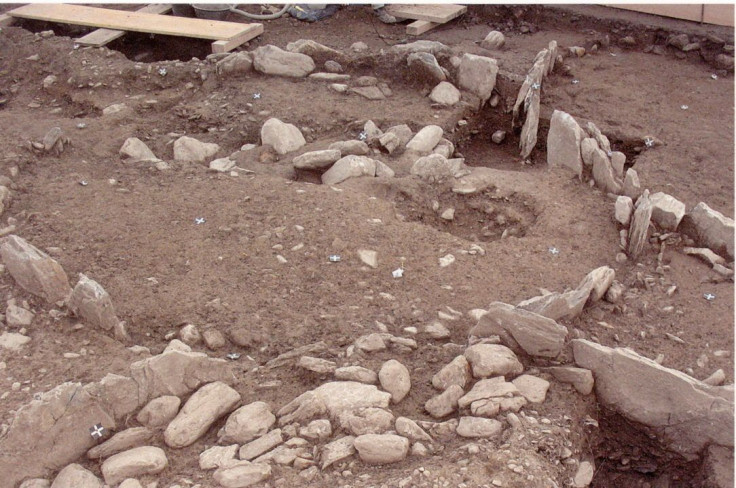Celtic Tomb Discovered In France Believed To Contain Iron Age Prince

Archaeologists unearthed a burial tomb in a small French town about 80 miles south of Paris that they suspect is the tomb of an Iron Age Celtic prince. The more than 130-foot-long tomb and burial mound contains Celtic and Greek artifacts and other items that archaeologists believe are Etruscan, the civilization that thrived beginning around 700 B.C. The artifacts appear to date from the fifth century B.C.
At the center of the site are a chariot and a 150-square-foot burial chamber, which is one of the largest ever found for the period. The tomb is surrounded by bronze pots, pitchers and other vessels. A knife in its sheath also was found. A number of the artifacts are decorated with Greek religious scenes, including one with a Greek river god and another with Dionysus, the god of wine and festivals.
“It is probably a local Celtic prince,” Dominique Garcia, president of the archaeological research institution Inrap, said during a site visit, according to BBC. He added that the surrounding artifacts are evidence that Greeks and Celts traded during the Iron Age.
Photos of the excavation site can be seen here.
A fifth-century B.C. Celtic prince would have bartered with Greek traders from relatively new city-states like Marseille in Western Europe which sought to obtain slaves, metals and other goods, according to an Inrap press release. Similar artifacts have been recovered from other burial tombs of the same age.
The site is remarkable both for its large size and the quality of the 2,500-year-old artifacts there. Archaeologists were particularly excited to find a large bronze cauldron they think was built by the Etruscans in Italy, according to Phys.org. The Etruscans originated in an area north of Rome but expanded up the Italian peninsula in the middle of the Iron Age.
Inrap’s archaeologists have been working at the site since October. A French-language press release on the discovery can be found here.
© Copyright IBTimes 2024. All rights reserved.






















